| Vintage Pulp | May 16 2023 |


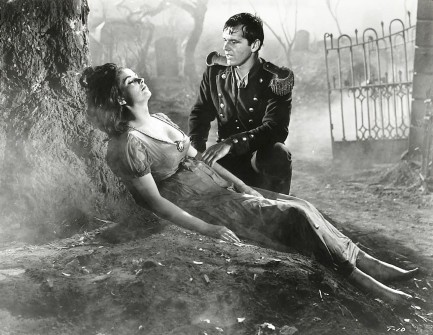
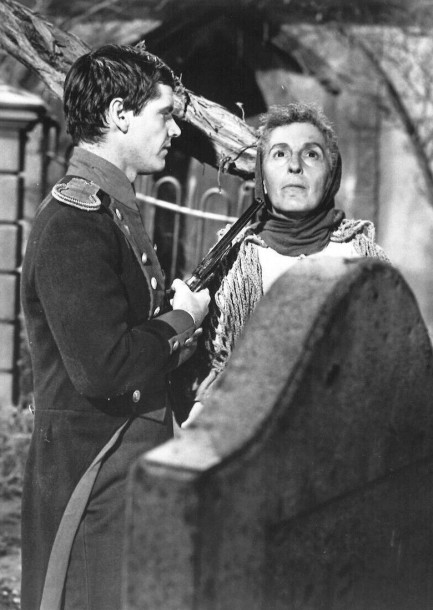
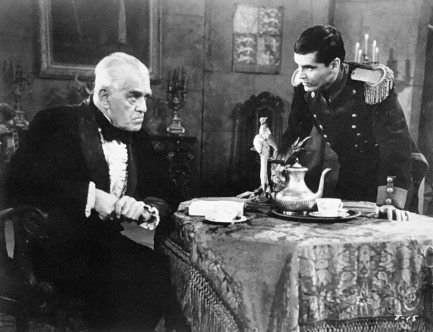
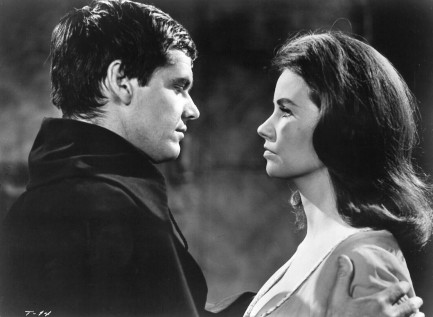
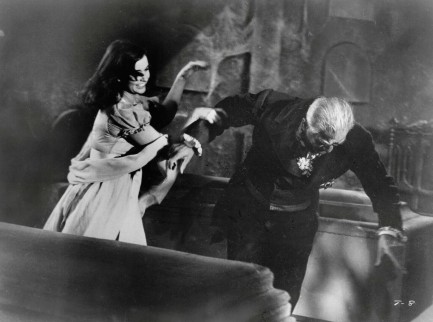
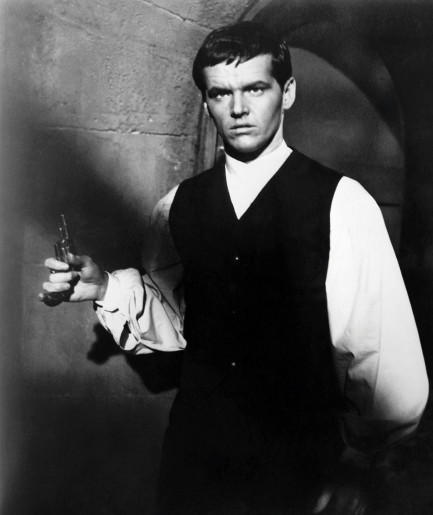
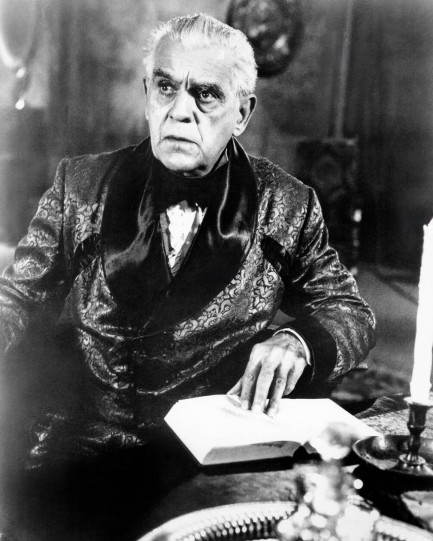
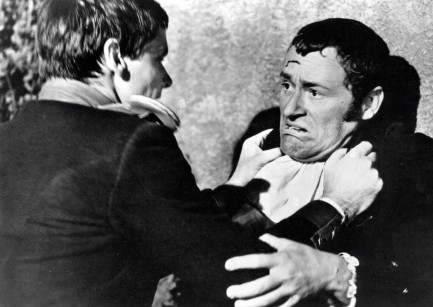
| Vintage Pulp | Feb 14 2018 |

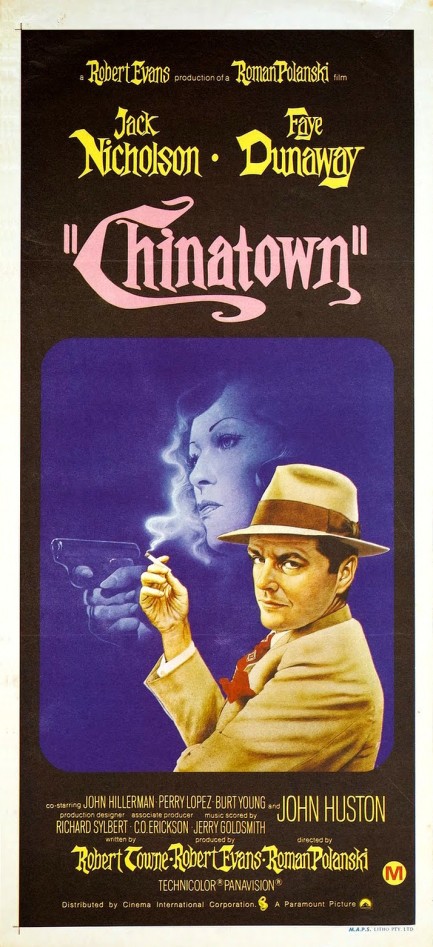
As far as director Roman Polanski goes, we've talked about him before. But we'll add that art stands on its own, and people stand on their own too. Having created superior art should not absolve someone of crimes; having committed crimes should not serve to denigrate superior art. That's just our opinion. Plus, a director isn't the only one responsible for a film. The hundreds of others involved, including the select group pictured below, and especially the unpictured screenwriter Robert Towne—who is just as responsible for Chinatown as Polanski and won an Oscar for his screenplay—deserve credit. We will always criticize art for being inaccurate when it pretends to be truthful, or for promulgating false or harmful beliefs. Chinatown doesn't do that. Quite the opposite—it offers sharp insights into how and why Los Angeles became what it is. Meanwhile its subplot somewhat foreshadows Polanski's own crime, which makes the film ironic in the extreme. If you haven't seen it you simply must.
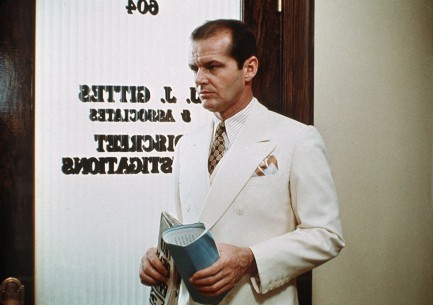
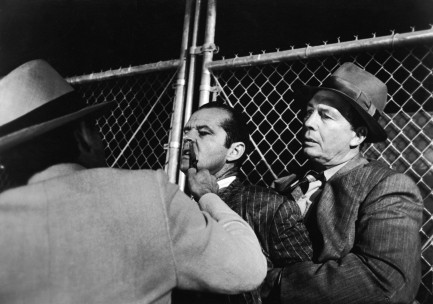
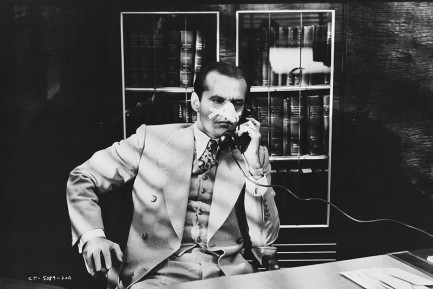

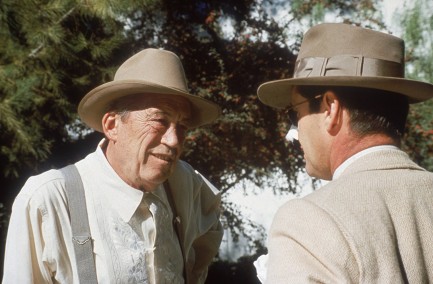
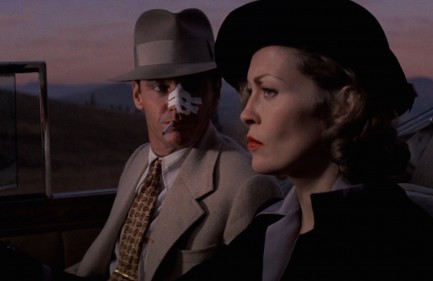

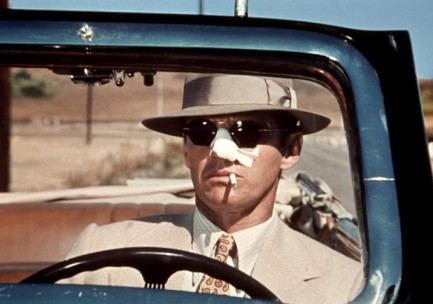
| Hollywoodland | Jun 30 2015 |

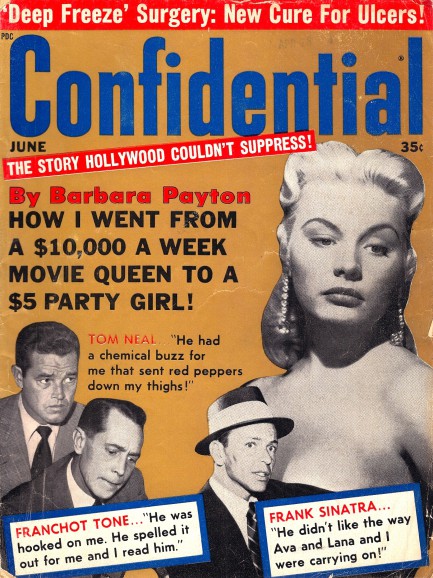
This gold colored June 1963 cover for Confidential magazine is entirely given over to actress Barbara Payton, whose self-penned hard-luck story appears inside and details her life troubles. The tale is well known and is one we’ve touched upon before—early marriage and early motherhood, followed by stardom, romances, and riches, followed by booze, drugs, divorces and crime. Confidential being Confidential, the editors neglect to mention that the story here is not an exclusive, but rather is excerpted from I Am Not Ashamed, Payton’s painfully revealing autobiography.
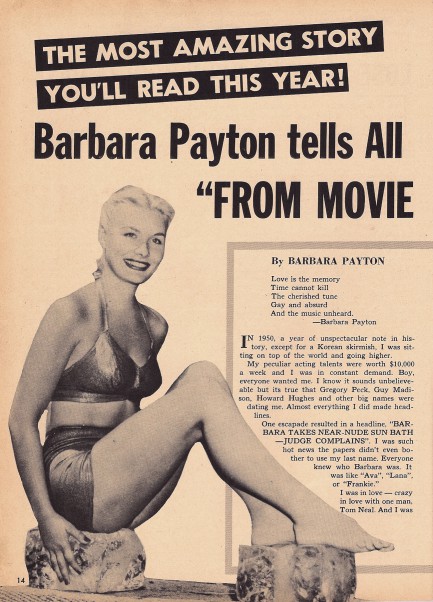
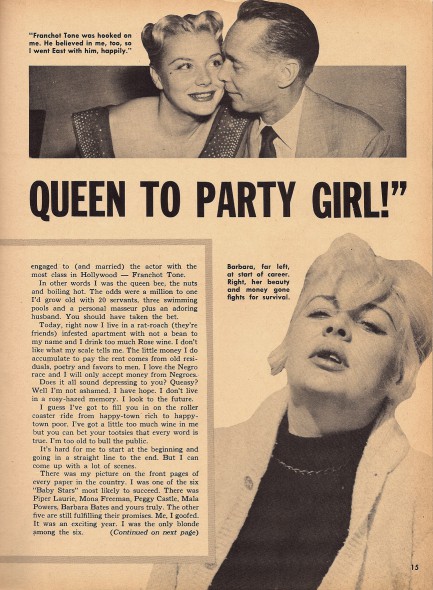 temperatures wherever I went. Today I have three long knife wounds on my solid frame. One extends from my buttocks down my thigh and needed I don’t remember how many stitches.” Payton’s anecdotes are cringe worthy, but they read like she’d gotten a grip on her life. No such luck. After four more long years of drugs, drink, and disaster she was found dead on her bathroom floor in 1967.
temperatures wherever I went. Today I have three long knife wounds on my solid frame. One extends from my buttocks down my thigh and needed I don’t remember how many stitches.” Payton’s anecdotes are cringe worthy, but they read like she’d gotten a grip on her life. No such luck. After four more long years of drugs, drink, and disaster she was found dead on her bathroom floor in 1967.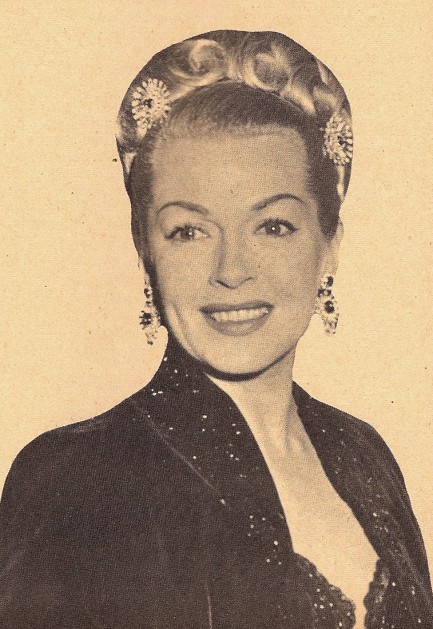 We like that passage, because nearly all the stories about Payton declare, or at least suggest, that everything that happened after Hollywood stardom was part of a terminal plummet. That’s pretty much the default setting in American journalism—anything other than wealth and fame is by definition failure. It’s an idiotic conceit, even a harmful one, and Payton reveals that in Mexico she landed someplace solid and safe, and got along fine without money or recognition. Two years of happiness is nothing to take lightly. But she just couldn’t sit still—not because of where she was, but because of who she was.
We like that passage, because nearly all the stories about Payton declare, or at least suggest, that everything that happened after Hollywood stardom was part of a terminal plummet. That’s pretty much the default setting in American journalism—anything other than wealth and fame is by definition failure. It’s an idiotic conceit, even a harmful one, and Payton reveals that in Mexico she landed someplace solid and safe, and got along fine without money or recognition. Two years of happiness is nothing to take lightly. But she just couldn’t sit still—not because of where she was, but because of who she was.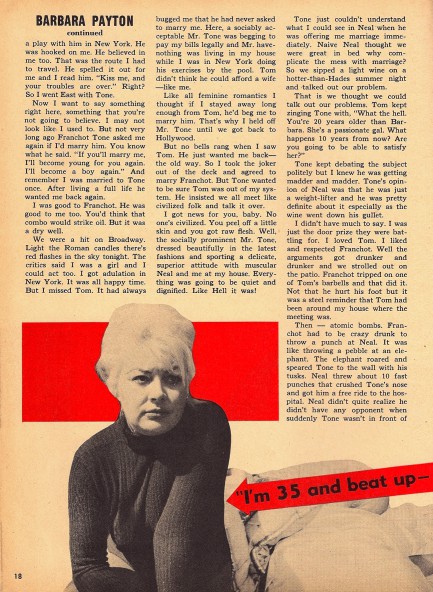
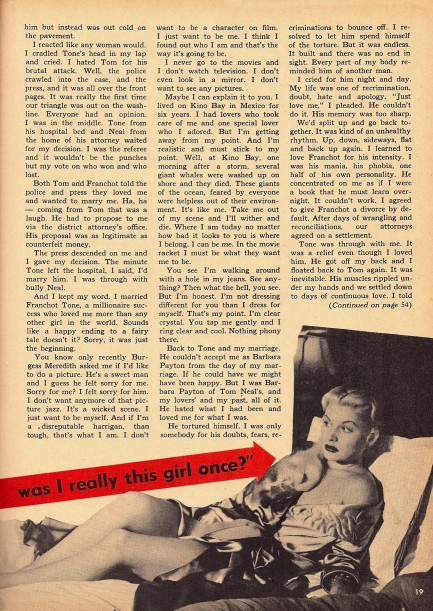
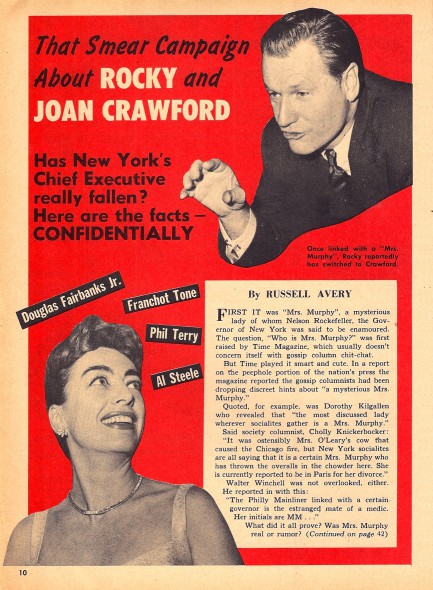

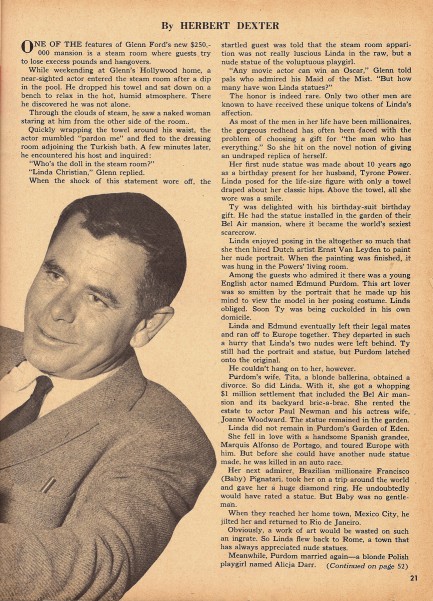
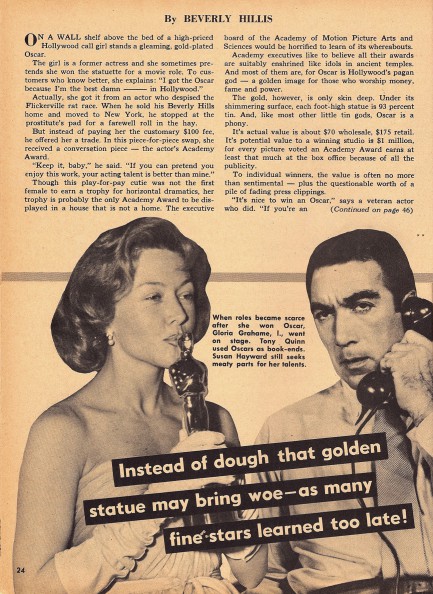
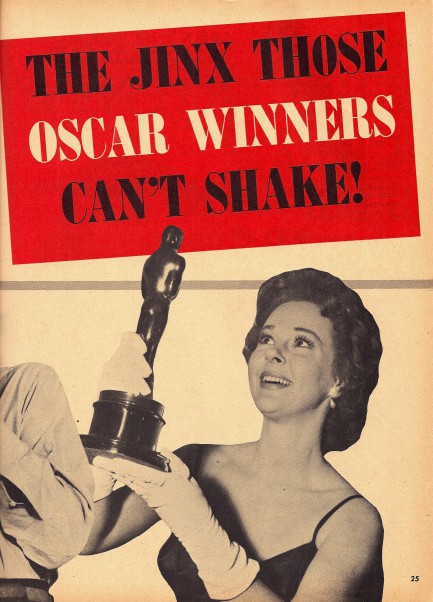
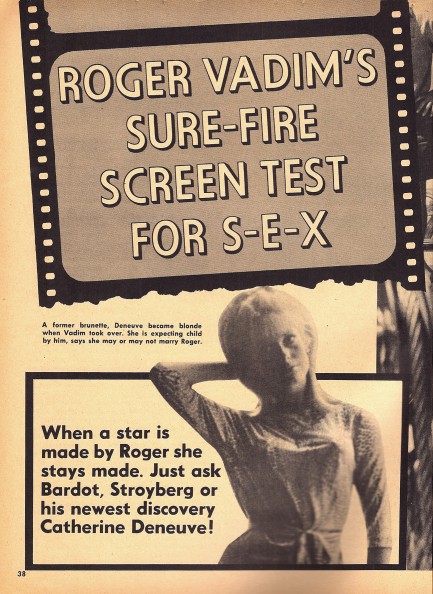
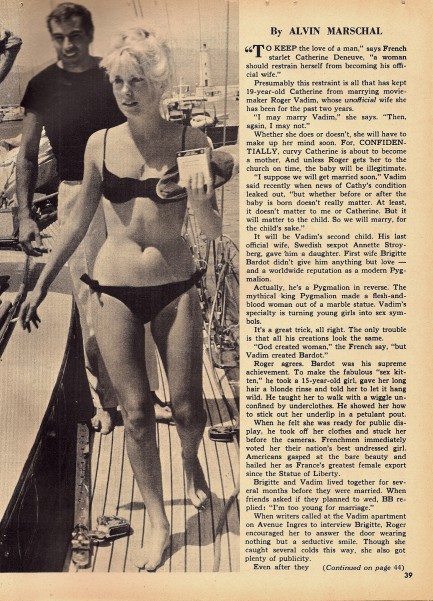
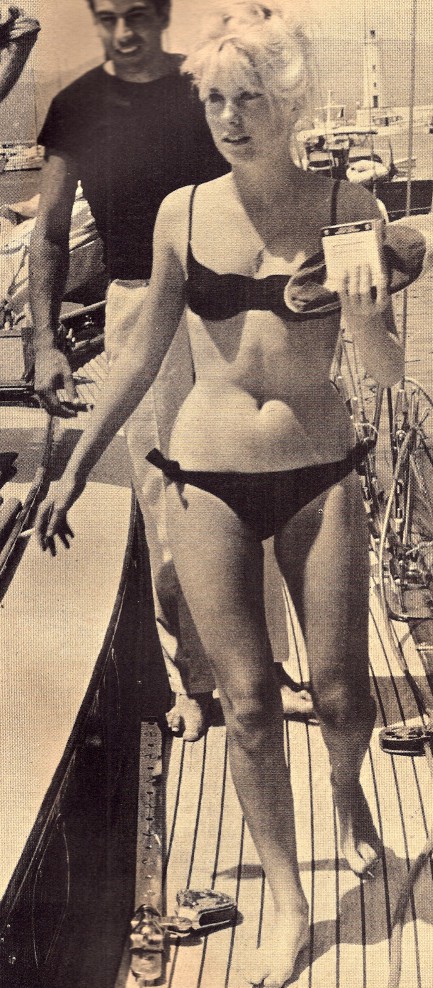
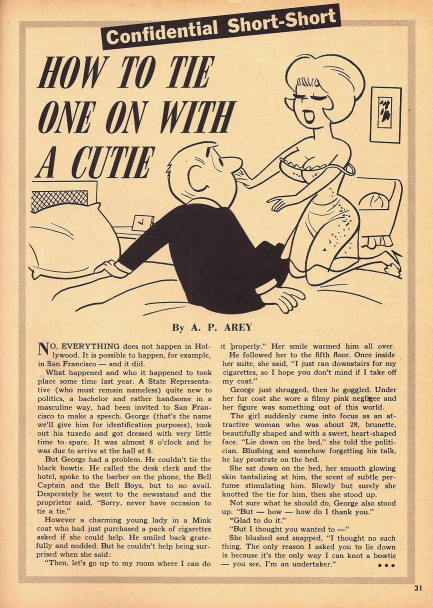
| The Naked City | Jun 23 2011 |

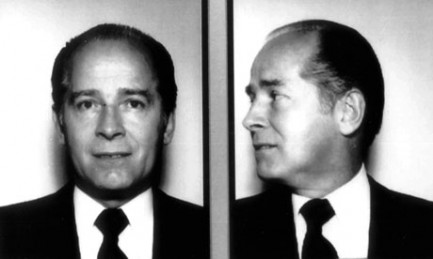
No, Whitey Bulger isn’t a thing, but a person. James “Whitey” Bulger, a notorious gangster who had been on the FBI’s 10 Most Wanted List for sixteen years and was the template for Jack Nicholson’s character in Martin Scorsese’s The Departed, was captured last night in Southern California. Bulger had once been leader of an Irish organized crime syndicate called the Winter Hill Gang, and worked for twenty years as an FBI informant in Boston. But he was dropped from the Feds’ roster in the early 1990s and dropped out of sight himself in 1995 when his FBI handler John Connolly, Jr. tipped him off that an indictment was coming down. Bulger was arrested yesterday at a Santa Monica apartment complex and now will face a full slate of serious charges—including murder, conspiracy, money laundering, narcotics distribution, and extortion.
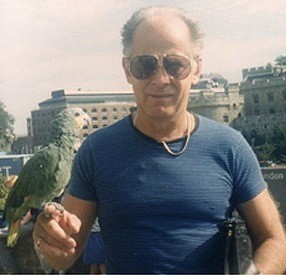 eye to Bulger and Flemmi’s ongoing crimes. Flemmi himself testified in court in 1998 that the FBI gave him a free pass on numerous murders and attempted murders. He described it as having a “license to kill.”
eye to Bulger and Flemmi’s ongoing crimes. Flemmi himself testified in court in 1998 that the FBI gave him a free pass on numerous murders and attempted murders. He described it as having a “license to kill.”| Vintage Pulp | Apr 12 2009 |

Most critics think it’s one of the best films ever made. We think its promo art is also of rare quality. Below are two Japanese one-sheets for Roman Polanski’s all time masterpiece Chinatown, starring Jack Nicholson, Faye Dunaway and John Huston. It premiered in Japan today in 1975.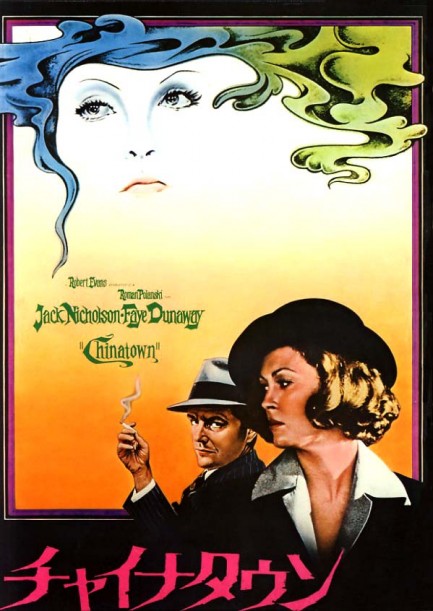
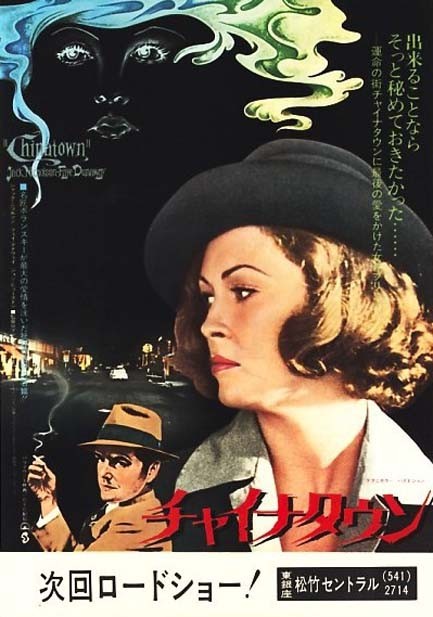
| Vintage Pulp | Jan 31 2009 |

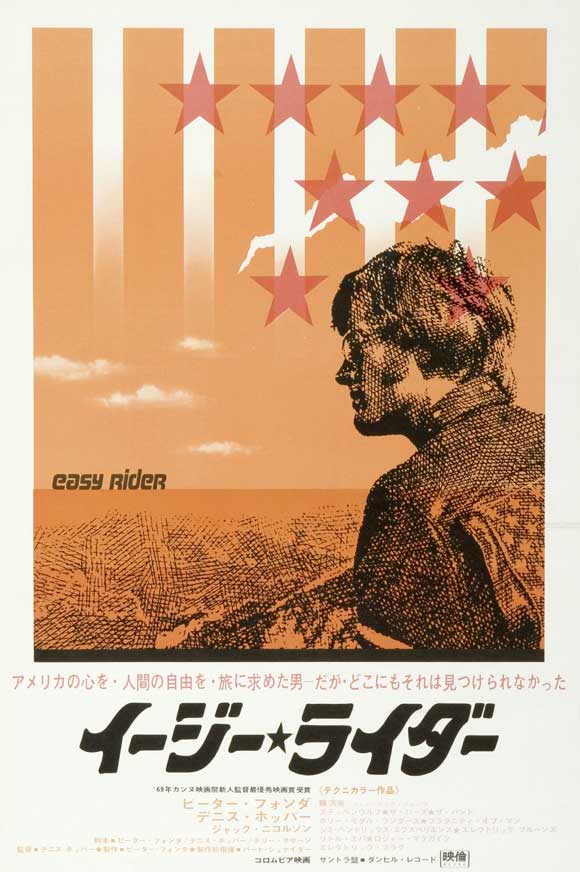
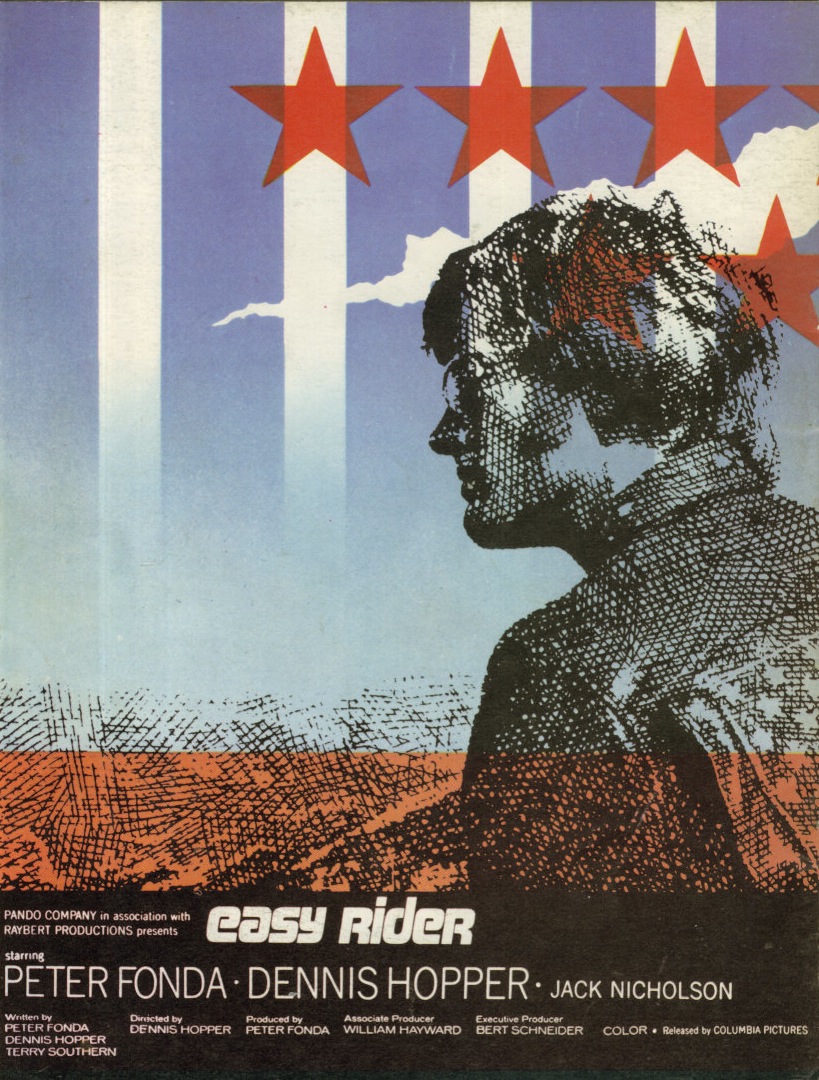
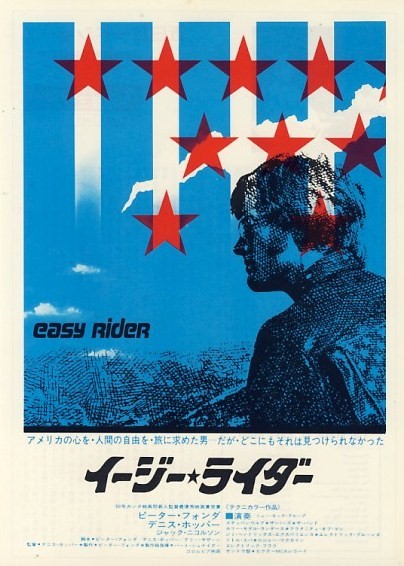
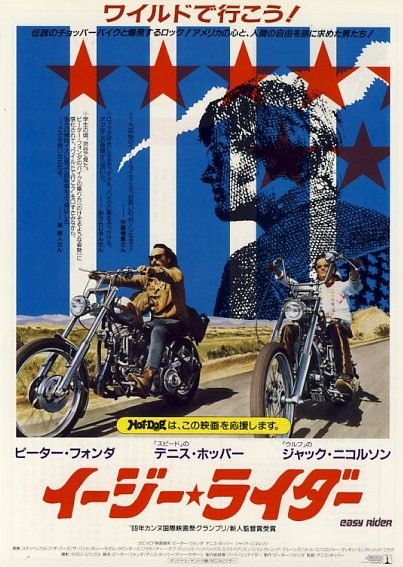
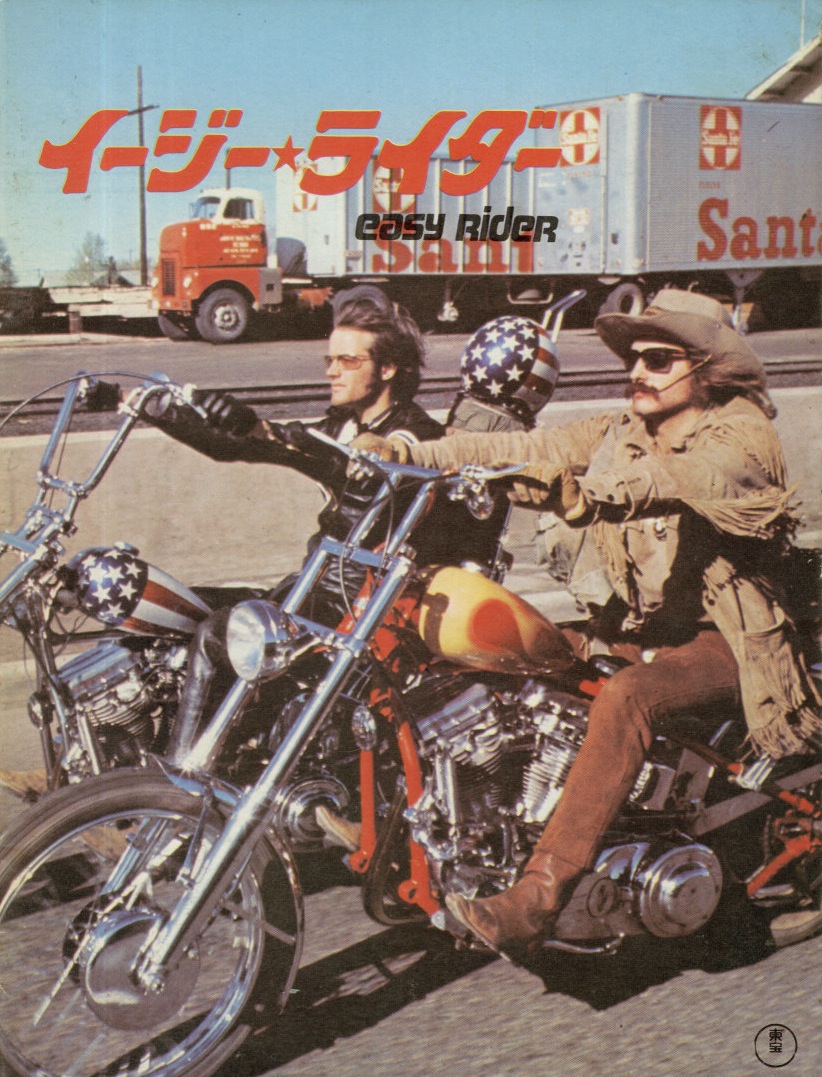
Neither of us at Pulp Intl. were around during the 60s. Articles and reviews tell us Easy Rider—heavy with symbolism, sparse of dialogue, and low on budget—perfectly captured the unsettled mood of the times and changed moviemaking forever. But we weren't there, so we watch this film as latecomers, like people examining the high water mark of a flood that long ago receded. If the waters had risen higher perhaps we’d be living in a different world now, a better world rebuilt from scratch. But maybe not. Easy Rider was released in Japan today, 1970.
| Modern Pulp | Jan 6 2009 |


Remember Stanley Kubrick’s classic horror film The Shining, in which we see Jack Nicholson’s character Jack Torrance spending weeks writing his great American novel, only to learn near the climax that the entire manuscript consists of a single repeated sentence? Well, now you can buy Jack Torrance’s masterpiece. It’s called, of course, All Work and No Play Makes Jack a Dull Boy, and consists of that sentence over, and over, and over. Quick to read but slow to comprehend, this confounding but ultimately visionary work will likely secure an honored place for Torrance alongside other fictional fiction writers, such as Paul Sheldon and Joan Wilder. All Work is available online here. Get ’em while they’re hot.
| Hollywoodland | Dec 3 2008 |

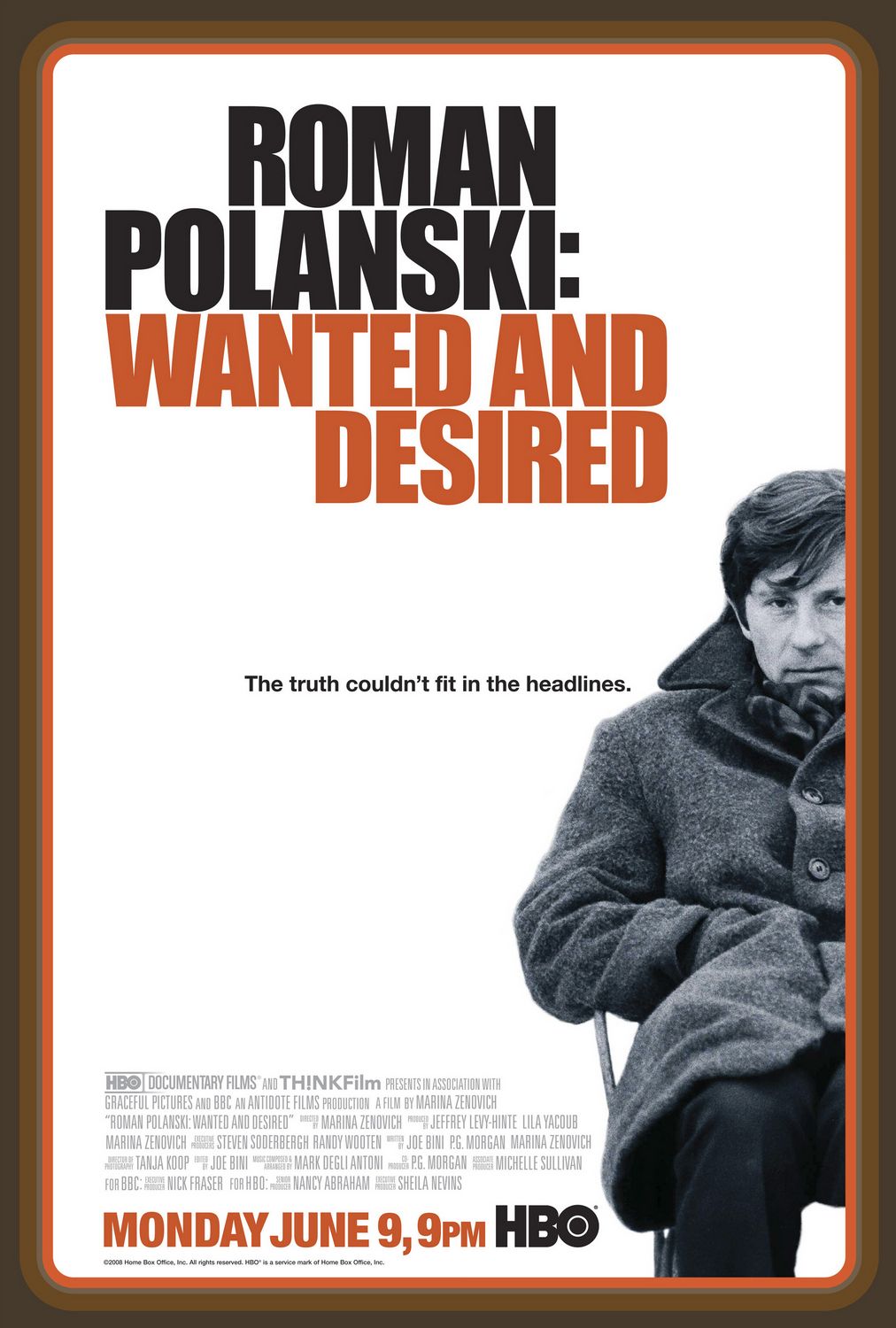
In Los Angeles yesterday, lawyers for film director Roman Polanski filed a request to dismiss a 30-year old charge of unlawful sexual intercourse with a minor. Polanski was once a U.S. resident, but fled to France in 1978 and has been wanted by American authorities ever since for allegedly giving a 13-year old model Quaaludes and champagne, before having sex with her—or raping her, depending on the telling—in Jack Nicholson’s hot tub when Nicholson was not on the premises.
Polanski’s life story reads like the darkest pulp fiction. He survived the Nazis as a child by escaping to the U.S., but without his parents, who were imprisoned in a concentration camp, where his mother was later gassed. As an adult Polanski rose to fame after directing the supernatural thriller Rosemary’s Baby, but his life was again derailed in 1969 when members of Charles Manson’s clan murdered his wife, Sharon Tate, and their unborn child. Polanski somehow recovered enough from this second horror to continue working, and went on to direct Chinatown, considered by many to be one of the ten best films in American history.
When he was arrested in 1978 he faced multiple charges, but a plea deal was offered. According to prosecutors, Polanski likely would have been handed a sentence of three years or fewer in prison. However, by the letter of the law, the charges could also have  resulted in a sentence of fifty years. Polanski didn’t stick around for sentencing. Instead he jumped bail and fled to Europe, where he continued to direct films over the next three decades, including 2002’s The Pianist, for which he won a best director Academy Award in absentia.
resulted in a sentence of fifty years. Polanski didn’t stick around for sentencing. Instead he jumped bail and fled to Europe, where he continued to direct films over the next three decades, including 2002’s The Pianist, for which he won a best director Academy Award in absentia.
Polanski’s lawyers filed yesterday’s dismissal request on the grounds of prosecutorial and judicial misconduct, after the HBO documentary Roman Polanski: Wanted and Desired, revealed that former judge Laurence J. Rittenband held news conferences and extrajudicial meetings about the case. The documentary also revealed that former Deputy District Attorney David Wells gave judge Rittenband sentencing advice, even though he was not assigned to the case.
The girl with whom Polanski admitted having sex (i.e. statutory rape), but who asserts she was violated while basically unconscious, is now 43. HBO’s documentary portrays prosecutors seeking to railroad Polanski, but he admitted what he did, which means the case for unlawful sexual intercourse could have stood on its own without prosecutorial games. Now, thirty years later, it’s possible authorities feel that dropping the charge would be akin to encouraging more flights from justice. And more importantly, a dismissal could have negative consequences upon similar cases still working their way through courts.




































































